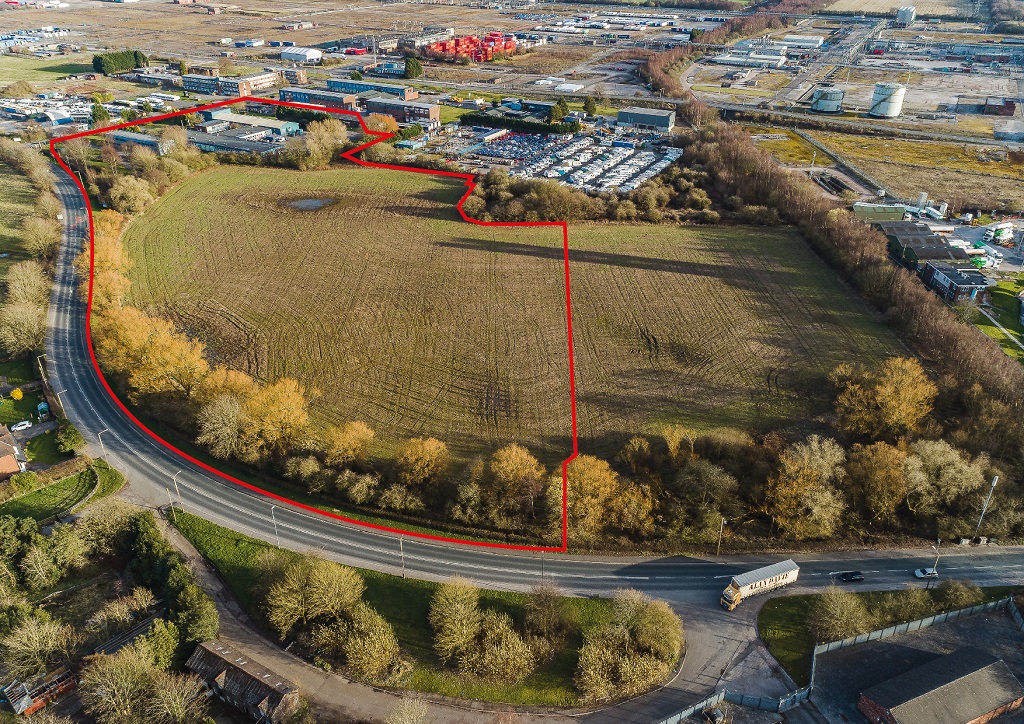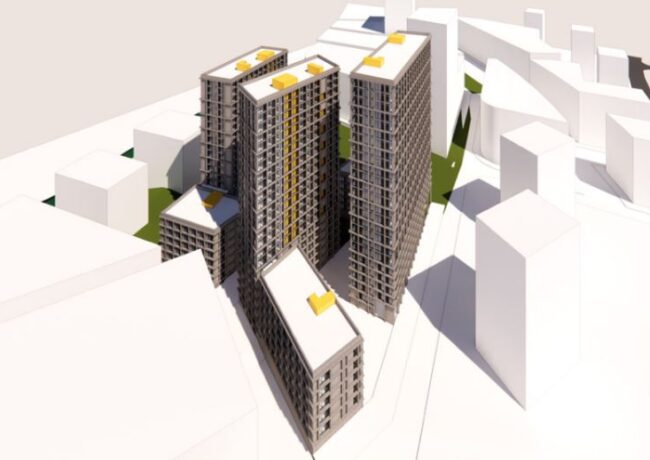Industry sends open letter to council leaders over GM plan
More than a dozen property business leaders in Greater Manchester have written to the 10 leaders of the local authorities and the interim mayor to complain about a lack of ambition in the draft Greater Manchester Spatial Framework, currently out for consultation.
The open letter in full:
The Greater Manchester Spatial Framework (GMSF) is an opportunity to provide positive and coordinated planning for new jobs, infrastructure and more and better homes in the City Region. It is also a once in a generation opportunity for Greater Manchester to meet the aspirations of millions of people and close the prosperity gap with London.
For these reasons, as members of the Manchester development industry, we welcome the progress of the GMSF and the acknowledgement it includes that a review of the Green Belt is needed to enable Greater Manchester to grow sustainably. But we also see it as our responsibility to be critical friends of a process we strongly support, in order to help Greater Manchester achieve a sound and positive plan.
It is in this spirit that we write to Greater Manchester leaders to set out our view that that Draft GMSF does not fulfil its promise; in fact, in its current shape it is a handbrake on opportunity that will hamstring the stated ambition “to transform Northern Growth.”
Not planning for enough jobs
The Draft GMSF is pessimistic about the potential for jobs growth in Greater Manchester. It uses an assumed rate of employment growth of 0.7% per annum, based on a forecasting model. This assumed rate is below:
The 0.76% growth achieved in the period that included the most prolonged and severe recession since the 1920s (1999 to 2015);
The 1.22% growth rate achieved in Greater Manchester since 2009; and
The growth of comparable UK and European cities such as Dortmund and Nantes.
The current Draft plans for reduced job growth in the years to come. At a time when the objective is to see Greater Manchester perform to its maximum potential, it is illogical to plan on the basis of weaker jobs growth than in its recent past and in comparable areas.
Not planning for enough homes
On top of this gloomy economic outlook, the Draft GMSF plans for too few homes and this has potentially serious, damaging and longstanding consequences for Greater Manchester. There is a major mismatch between the future population and the future economy that GMSF plans for, something that is compounded by the pessimistic assumptions about jobs growth.
Indeed, the Draft falls short of national planning policy, practice and case law on assessing the need for homes; for example, by not adjusting this for historic under-supply of housing and worsening signals from the housing market.
Meeting the need for affordable housing
So not only does the Draft GMSF not plan for enough jobs, nor does it plan for enough homes to tackle house price inflation or boost social housing. In turn, the GMSF effectively sidesteps the significant unmet need for affordable homes across Greater Manchester, despite the region taking a lead on developing new delivery models and funding initiatives for affordable housing. The overwhelming majority of new affordable homes in the region are delivered on mixed schemes where market housing is able to subsidise the cost of providing affordable housing. Delivering enough affordable homes to reduce the waiting list of 81,000 families simply will not happen without planning for, and then securing, affordable provision as part of private sector schemes, on a larger scale than envisaged by the current Draft.
Steps towards a sound and positive plan
As industry members with decades of collective experience in planning development in Greater Manchester, we propose three steps that can turn the GMSF into a motor of ambition and opportunity:
Be ambitious for job growth: plan for an acceleration in jobs growth to allow Greater Manchester to punch it’s economic weight;
Match jobs and homes: adjust the number of homes needed to match planned job growth, so working people and their families have somewhere to live;
Assess affordability: adjust the assessment of housing need to take into account the historic shortage of homes, rocketing house prices and the ballooning waiting list for affordable homes.
Our concerns are not ones of principle, but rather of scale; yet still they are significant enough to make us nervous that the GMSF may be found ‘unsound’, which in turn would delay and frustrate ambitions for economic growth and a rebalancing of the economy. We have already seen other local authorities running into delays of several years for very similar reasons. Manchester cannot afford for this to happen here.
We encourage local leaders to take these positive steps towards a sound GMSF that will give the Greater Manchester economy, and its residents, the living space needed to reach their mighty potential.
Yours sincerely,
The Housing the Powerhouse Steering Group:
- Matthew Good, Home Builders Federation
- Mark Waite, Bloor Homes
- Paul Smith, The Strategic Land Group
- Richard Knight, The Peel Group
- Steve Burne, Greater Manchester Chamber of Commerce
- Bernard Rooney, Barratt Developments
- Kerren Phillips, Jones Homes (North West)
- Victoria Hesson, Gladman Developments
- Graham Bee, The Emerson Group/Orbit Developments
- Glenn Rowson, Bowsall
- Stan Shreeve, HIMOR Group
- Gary Jackson, DeTrafford Estates
- Iain Thomson, Harworth Group
The current round of public consultation into the draft GMSF closes on Friday 23 December.





Growth – but at what cost?
By Badger
They would, wouldn’t they
By Nordyne
Mostly housebuilders sharking for more land to be released. Sure their aspiration for ambitious growth isn’t built out of civic pride that the region be all that it can be
By Anon
Housing the Powerhouse are a totally discredited lobby group. Everyone knows what their agenda is despite the well crafted press release. It has been reported that Peel are particularly aggrieved that a number of their sites in Salford weren’t included in the framework.
There is a legitimate debate to be had around green belt release, overall numbers and affordability but everyone knows private sector house builders and landowners build to effective demand and not houing need. Therefore releasing more of their favoured greenfield sites will have next to no impact on affordability or supply, let alone the quality and sustainability of our urban environment.
By Place over profit
The volume house builders will skew the market by land banking and building at a rate that suits them and the politicians, officers and NIMBYs will do their best to restrict the number of sites coming forward, particularly in the areas where most demand exist. And in between all of this is joe public and the next generation who become largely failed by all those involved.
By NC
I see no effort to justify their claims using reference to source data or methodology. It’s always easy to find stats to support almost any point of view. Without justification and supporting evidence they are just random numbers with no more value than any other numbers I might choose to pull out of the air.
By Environment_not_profit
Propaganda from greedy builders wanting to make huge profits. With no thought to the quality of life of the poor residents who have live with the consequences.
By Anonymous
Despicable!
By Anonymous
Total and utter selfish propaganda from greedy builders seeing massive profits. They will be millionaires who live no where near to the chaos they will cause – houses alone without an infrastructure are NOT a ‘Northern powerhouse’ transport infrastructure and social amenities have to match any house build going on -and they do NOT propose that. This is just a quick fix for a few greedy builders who have absolutely no thought to the quality of life they will be thrashing to residents who have to live with the consequences.
By Simon Thorley
The traffic and the fumes in Wigan are at an all time level. The roads, drainage systems are shot. The schools are full. The local hospital is unable to cope. Some of the land is highly toxic. I don’t see how building all these houses is going to increase the numbers of people in work as there is a skills shortage. AND how many of these houses will brcome buy-to-let?
By Anonymous
The Campaign to Protect Rural England agrees that the Greater Manchester Spatial Framework is an opportunity to provide a positive and coordinated plan for new jobs, infrastructure, and more and better homes in the City Region. But we believe it should involve more focus on the reuse of the wasted assets of brownfield land, and public transport investment rather than sprawling car based development in beloved countryside.
Of course developers, such as these, would write such a letter calling for Green Belt release – it is in their interest to do so.
But, CPRE thinks speeding along without due care isn’t helpful to anyone, and frankly would be glad if a ‘handbrake’ was applied to stop a needless countryside loss and with it a property market crash.
Added into the jobs and housing calculations are, in fact, arbitrary uplifts relating to high growth ambitions that in reality cannot be achieved. We believe the plan as it stands would swamp the market with an endless supply of land never previously identified for development and would undermine the regeneration ambitions for Greater Manchester.
It would cause immense urban sprawl with massive loss of wildlife, farmland and considerable upset to communities already suffering from terrible congestion, dangerous air pollution levels and from a lack of school places and other vital community services.
There was a very insightful debate last Wednesday in the House of Commons by local MPs representing their constituents, and it appears that the majority of the people agree that everything should be done to regenerate and grow Greater Manchester without needless countryside loss.
Investment in upfront public transport is crucial to the success of the plan. If urban extension is required after all brownfield is truly exhausted, then proper master-planning should deliver much needed new infrastructure. Greater Manchester needs to plan properly.
https://hansard.parliament.uk/Commons/2016-12-14/debates/16121449000001/GreaterManchesterSpatialFramework
By Jackie Copley, CPRE Lancashire